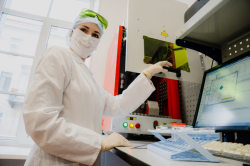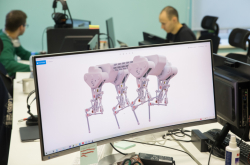At the core of the new standards is the ITMO Code: values, fundamental, soft skills, and professional skills, abbreviated V+F+SS+PS.
The general framework of educational programs, including the competencies acquired by the graduates, will be outlined by heads of those programs, who will be taking into account the labor market, scientific and technological trends, and recommendations from key players in the respective field. Then, it’s up to students to tailor their education according to their own interests starting from the second semester of their studies.
Over 300 people, including specialists from all of the university’s structural units and representatives of the Student Council, contributed to the development of the new educational standards in a process that lasted more than a year.
“It’s a qualitatively new result produced by a major team and aimed at developing highly personalized education based on ITMO’s values,” says Vladimir Vasilyev, the Rector of ITMO University.
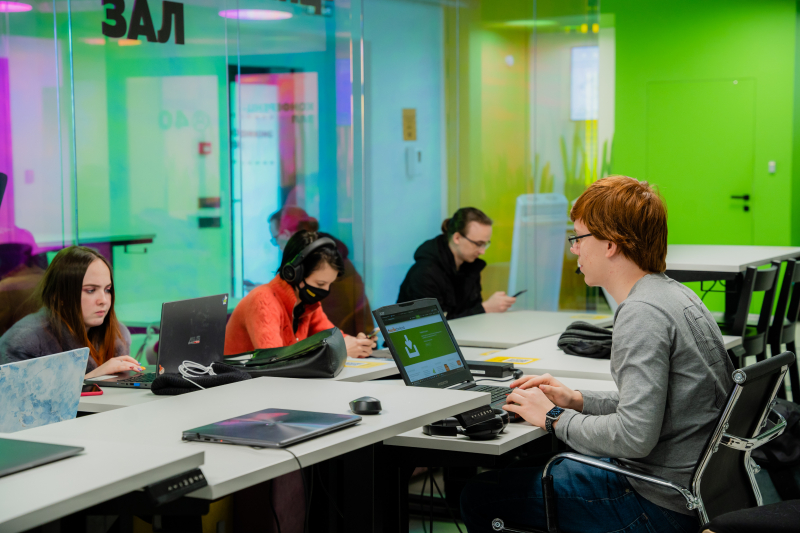
Photo by ITMO.NEWS
What’s new in the 2022 educational standards?
There are two standards in total – one each for Bachelor’s and Master’s levels.
Building on the previous edition introduced in 2018, the new standards create the conditions for personal and professional growth through personalized higher education.
Bachelor’s programs designed according to the new standards will offer students individual learning paths: tracking and planning tools that encompass courses, modules, minor programs, optional courses, and other academic activities. As a result, students will graduate from ITMO with a personalized selection of competencies.
For Master’s students, programs based on the new standards will take the shape of a learning track that can be personalized based on students’ personal and professional interests. This will help students grow into specialists with a unique set of soft and hard skills and will ensure a quick transition to professional activities after graduation.
The new educational programs can be implemented online, offline, or in the blended format. They can be designed within the university by the head of the program and their team or with a network of partners, such as Russian and international universities, research institutions, and companies.
Moreover, the new standards amplify the projected results of education at the university in terms of competencies acquired by students. Educational standards dictate the choice of core and soft skills, while professional competencies are chosen by heads of programs. The updated core skills now cover such fields as AI, professional ethics, and self-identification (these concepts can be found in descriptions of competencies and their indicators).
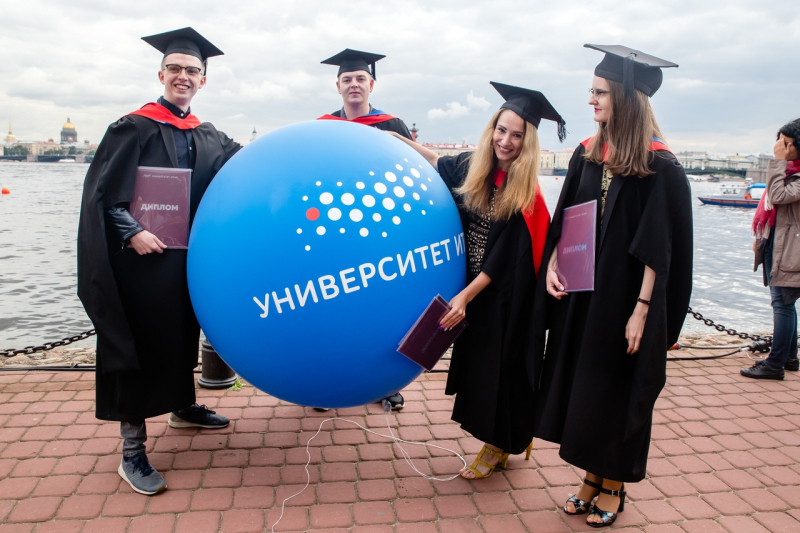
Photo by ITMO.NEWS
Additionally, the educational standards introduce several new terms and concepts:
Minor programs are modules that are aimed at developing additional competencies in a field different to that of a student’s educational program. By completing a minor, students can obtain an additional qualification.
Learning analytics are data on a student’s experience, including the academic kind, as well as the methods of its collection and analysis and services that provide students access to such data. Learning analytics helps students assemble their individual learning tracks.
Optional courses will now have more weight in the structure of an educational program. Among these courses are the university-wide optional courses, an adaptation course for students with disabilities, or courses aimed at helping students with specific subjects, such as math, physics, foreign language, etc.
What opportunities do the new educational standards offer to students and teaching staff?
Students will enjoy more opportunities to form their individual learning tracks. The key personalization elements are:
- Educational products (produced by ITMO and its partners). That includes courses, modules, minor programs, online courses, continuous professional development (CPD) programs, and more;
- Optional courses;
- Events outside the scope of educational programs (competitions, contests, conferences, etc);
- A learning analytics-based recommendation system;
- Academic advisors (experienced Bachelor’s, Master’s, and PhD students who have completed the corresponding training and selection). While the recommendation system is a digital support tool, advisors are its human counterpart. This educational feature allows students to seek advice and consult experts on their choice of learning track.
Therefore, students are able to construct their own educational programs using the elements at their disposal.
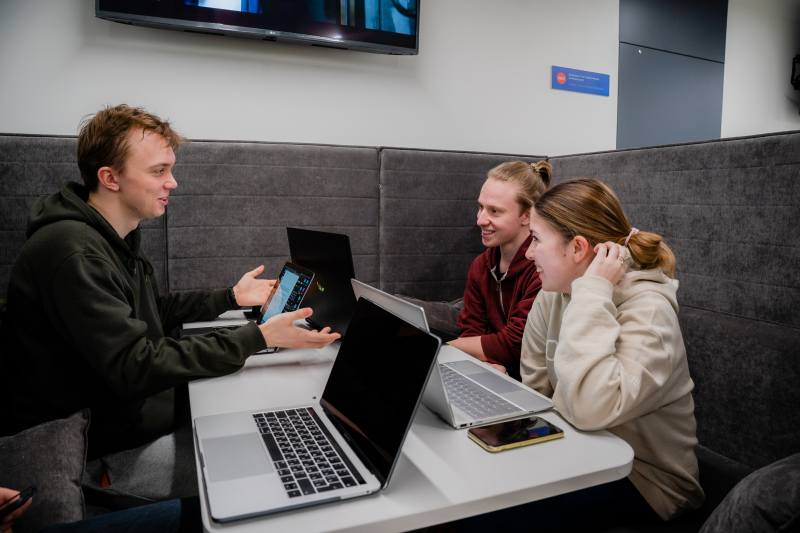
Photo by ITMO.NEWS
Teaching staff and heads of educational programs will receive access to new tools and models for the development and operation of their programs:
- Students work with the heads of educational programs to determine an individual time frame for the completion of a corresponding program;
- Heads of programs personally choose the relevant professional fields and corresponding competencies to be taught as part of the curriculum and approve the projected results of a program’s completion as well as the indicators used to assess a student’s acquisition of professional competencies;
- After assessing the labor market and their program’s target audience, heads of educational programs will formulate the corresponding program’s completion targets and develop a model program that will be offered to prospective students.
In order to form ITMO students’ professional and soft skills, heads of core educational modules along with their teams will suggest various models for the implementation of such modules. These modules will allow for variation in difficulty, content, length, and pace. Heads of educational programs will be able to use the basic models or request a unique solution that suits the goals and objectives of their programs.
Which challenges do the new educational standards pose before the university?
ITMO University’s educational programs are becoming more deeply personalized. They provide the conditions in which students can expand and hone their professional skills while developing their soft skills. For that reason, newly enrolled students must be familiar with their program’s specifics, understand the opportunities it offers, and use these opportunities actively.
The introduction of new educational programs and individual learning tracks entails a rehaul of the university’s business processes with an emphasis on their digitalization and optimization – this concerns every staff member and will require their utmost dedication and proactive effort.
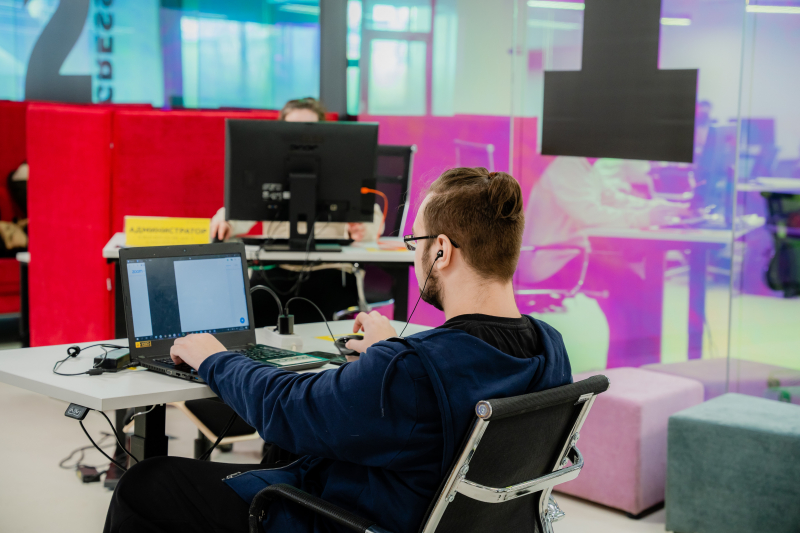
Photo by ITMO.NEWS
When is the transition to new educational standards expected to take place?
The new educational standards will apply to students of Bachelor’s and Master’s programs who will enroll in the 2022-2023 academic year. Students of previous years will continue to study based on the current set of standards.
How do the new educational standards correspond to the goals of the federal program Priority 2030?
The new educational standards facilitate the development of the “jigsaw education” concept, with educational programs now made up of various educational products provided by ITMO and its partners, including those available online. At the same time, they are in line with the goals of the university’s strategic project Highly Personalized Value-Based Education.
In addition, the new standards will form an environment based on the ideas of the Well-Being strategic project; in this new environment, new projects and values will have the room to develop (individual tracks for the personal and professional development of staff and students, development of students and staff’s legal and financial literacy, mindfulness practices, and more).
ITMO University’s Department of Academic Affairs




